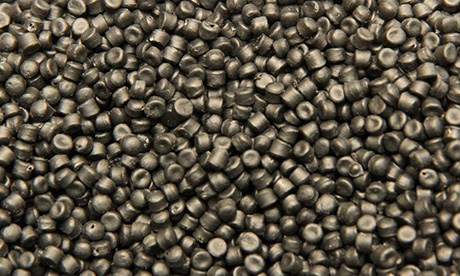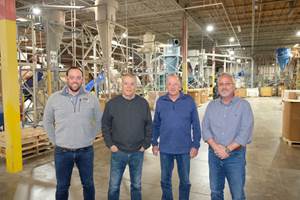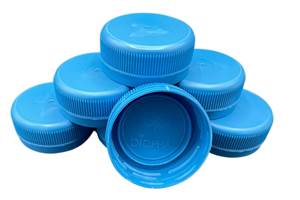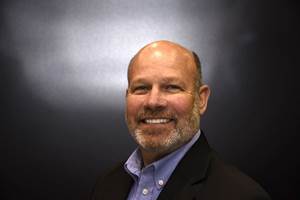First PC/ABS from Post-Consumer Recycled Plastic Underway
MBA Polymers looks to be first in producing post-consumer PC/ABS pellets from shredded WEEE.

My colleagues alerted me last week to the news that what appears to be the world’s first production of post-consumer PC/ABS pellets from shredded waste electrical and electronics equipment (WEEE) is now underway. I took one look and saw it was durable goods recycling and technology company and company founder Mike Biddle immediately came to mind as twice I’ve been fortunate to hear him speak within the last three years at SPE’s Global Plastics Environmental Conference (GPEC).
Biddle launched MBA Polymers in 1994 in Richmond, Calif. with a vision of being the first company to automate plastics recycling from very complex waste containing materials such as metals, glass, and various plastics, and on a large scale. He and his team of chemical, mechanical, electrical and mining engineers developed a separation process—for which there is a mix of different patents--of an energy-efficient, cost-effective way of extracting plastics from complex waste streams. MBA’s proprietary processes are said to use less than 20% of the energy needed to product standard virgin resins. The company is now recognized as the world’s leading multi-national pioneer in recovering plastics from complex waste streams like computers, electronic appliances, automobiles, and household wastes.
In mid-2013, the company closed its pilot-scale facility in Richmond and moved its R&D and headquarters to its 126,000-sq.ft. facility in Workshop, England. At the 2014 GPEC event I attended, Biddle said the move was made because Europe does more recycling and offers more R&D opportunities, at least in the near term. While the U.K. plant is reportedly the world’s largest and most advanced facility for recovering plastics and rubber from automotive shredder residue, MBA’s plants in Austria and China have been focused on WEEE since 2006.
It is MBA’s Kematen, Austria facility that just began to produce post-consumer PC/ABS from WEEE, for which excellent mechanical properties are claimed, with production expected to steadily build up through the year. It will be distributed under the tradename EvoSource. and aimed at automotive, electrical and consumer electronics applications. In electronics, for example, designers will be able to specify EvoSource PC/ABS to increase the use of post-consumer recycled plastics in order to achieve the higher ratings required by the Electronic Product Environmental Assessment tool (EPEAT).
Said MBA Polymers CEO Richard McCombs, “The decision to develop PC/ABS products reflects our determination to meet the growing demand from customers for post-consumer recycled plastic as well as extending our commitment to sustainable growth. Every 1% increase in the usage of our waste benefits our return on investment enormously. MBA is unique in being able to extract the degree of value that we are achieving today from WEEE.”
As for Mike Biddle, he remains a non-executive director of MBA Polymers. Last year, he started up San Francisco Bay area , an organization that aims to help other “clean-tech entrepreneurs” shorten their path to developing their 大象传媒es. The company also consults with a wide variety of companies, organizations and communities around the world to capture material benefits from putting “circular economy” principles to work—including turning waste into resources and designing more favored new products with sustainable supply chains.
Search for more recycled resins in PT’s materials database.
Related Content
Evolving Opportunities for Ambitious Plastics Recycler
St. Joseph Plastics grew from a simple grinding operation and now pursues growing markets in recycled PP, food-grade recycled materials, and customized post-industrial and post-consumer compounds.
Read MoreProcessors: Gear Up to Handle More Regrind
Plastics auxiliary and primary processing equipment was optimized for running pellets; here’s how you can adjust to the bulk density differences of flake and regrind in drying, conveying, mixing, feeding and processing.
Read MorePHA Compound Molded into “World’s First” Biodegradable Bottle Closures
Beyond Plastic and partners have created a certified biodegradable PHA compound that can be injection molded into 38-mm closures in a sub 6-second cycle from a multicavity hot runner tool.
Read MoreGeneral Polymers Thermoplastics to Further Expand Distribution Business
NPE2024: Following the company’s recent partnership buyout, new North American geographic territories are in its sight.
Read MoreRead Next
See Recyclers Close the Loop on Trade Show Production Scrap at NPE2024
A collaboration between show organizer PLASTICS, recycler CPR and size reduction experts WEIMA and Conair recovered and recycled all production scrap at NPE2024.
Read MoreBeyond Prototypes: 8 Ways the Plastics Industry Is Using 3D Printing
Plastics processors are finding applications for 3D printing around the plant and across the supply chain. Here are 8 examples to look for at NPE2024.
Read More












